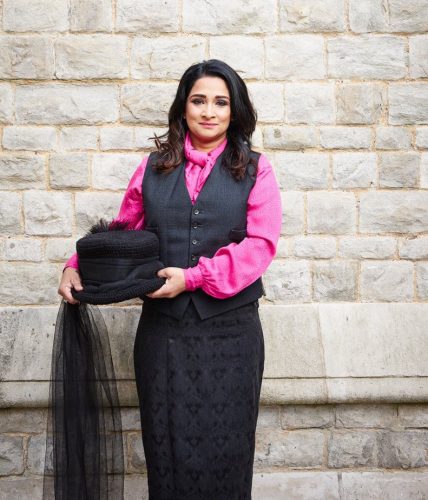
Guest post by Hasina Zaman of Compassionate Funerals
There are many facets to being a funeral director. Much of our work seems to stay behind closed doors. Are we actively shielding the public from the dead or is society choosing not to embrace death as a part of life? Death has perhaps become removed from the everyday lifecycle experience. Our aim is to bring it out into the open by explaining some of the processes we go through.
The aim of this article is to best describe how we care for the dead. At Compassionate Funerals we are dedicated to caring for both the bereaved and deceased. It’s very important that we work together with the bereaved so that they are at the heart of the funeral process. We believe it’s important that funerals are personalised, meaningful and empowering.
Before we collect the deceased there are a few processes that will take place. Initially, the bereaved or pre-bereaved family or friend will call us. This person may be the next of kin and in most cases will liaise with us at Compassionate Funerals. A person can die in hospital, a hospice, at home or in a care/nursing home. If death happens accidently or suddenly in any location, the deceased is under the care of the Coroner. They will take time to establish the cause of death. Therefore, when it comes to us collecting the deceased, we must ask where death occurred and decide what equipment is required for us to bring the deceased into our care.
We are particularly mindful when we are collecting the dead from their home. There may be bereaved family members present or children who may be experiencing death for the first time. We make sure that there is clear communication and permission from the bereaved family. This can be a very emotional and traumatic time. We do this quietly, slowly and gently as possible.
We got a call from Tina, who told us that her mum Joy had a few days to live. Joy was in a palliative care unit in a local hospital. Tina had also ordered her own bespoke coffin and wanted her mum to be buried in a natural burial ground in Essex.
Before setting off to the hospital, we made intentions to be compassionate and composed in receiving Tina’s mum. We checked that we had all the correct paper work, which is required for identification. We also made sure that we had the collapsible stretcher and covering for Joy. As a company practice, we always refer to the deceased by their name as opposed to the ‘body’ or the deceased. We feel this is respectful and is in keeping with basic human rights.
From the start, Tina was very clear that she wanted us to support her choice of involvement from her family. Once we brought Joy into our care she was laid to rest in a banana leaf coffin, as the family was averse to their “mum being in a cold fridge”. We suggested that Tina and her elder sister may want to help wash their mother before she was laid to rest. We facilitated the wash and fully supported them through the process. They were initially nervous, but their confidence grew. They used rose oil to wash their mum, and styled her hair. It was beautiful to witness and an honor to work alongside the two sisters. Their hands were tender, soft and delicate. They talked to her and re-told stories of their mum and her life.
Joy was a feminist and loved pink. Tina said that her mum would love to be shrouded in rose pink organic cotton. Joy was wrapped in five layers of cotton, similar to the Muslim funeral tradition. Both sisters expressed how they enjoyed spending time with their mum. They were able to perform Joy’s last offices and give her an honorable and loving send off.
On the day of Joy’s funeral, her children and grandchildren spent time with her. Her grandchildren had brought her gifts, letters and her favorite sweets that they placed in her coffin. We kept her room calm, cool and peaceful with subtle artifacts of all things pink.

0 Comments